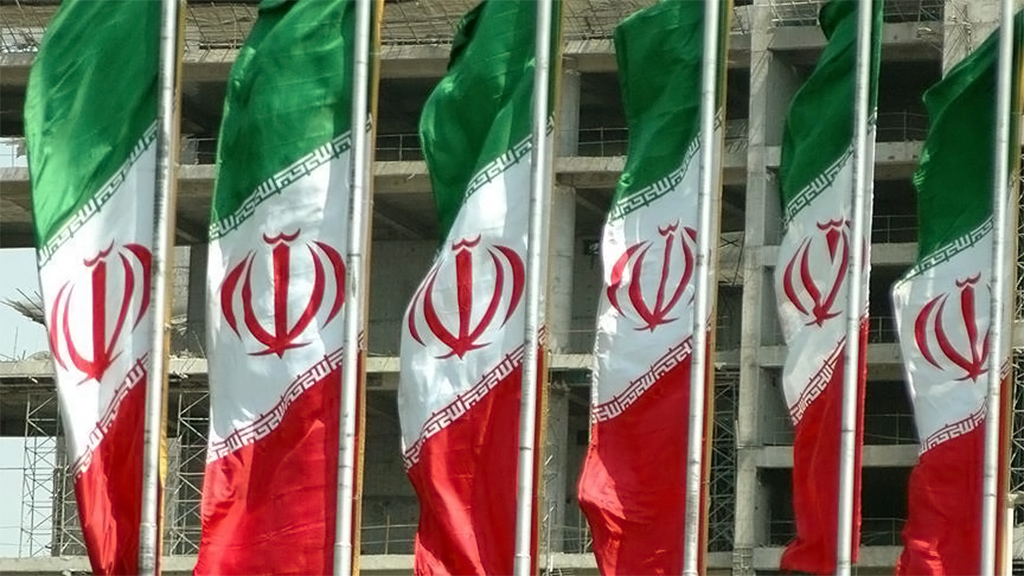
Trump's effect on the global system continues with Iran nuclear deal
Since becoming the U.S. president, Donald Trump never ceased to surprise international observers by his sheer speed in deconstructing all diplomatic efforts and compromises reached at multilateral platforms and ardently destroying the legacy of his predecessor Barack Obama.
Share
Since becoming the U.S. president, Donald Trump never ceased to surprise international observers by his sheer speed in deconstructing all diplomatic efforts and compromises reached at multilateral platforms and ardently destroying the legacy of his predecessor Barack Obama. No doubt, Trump is a strong believer in the pursuit of pure power politics in a chaotic international system as portrayed by his fellow American realists, and he does his best to render the whole system truly anarchical.
Previously, he had declared that the U.S. will withdraw from the Paris global climate change deal which was concluded following years of intensive and meticulous diplomatic efforts aimed at balancing the interests of global and emerging powers. He also interrupted the American rapprochement with Cuba, which was seen as one of the crucial diplomatic successes of the Obama administration. He announced new tariffs and trade barriers specifically aimed at emerging economies led by China, thereby jeopardizing the conventional stance of the U.S. as the vanguard of the liberal international trading regime. As opposed to the previous Bush and Obama administrations, Trump left the G20 in a limbo as he did not believe that a participatory form of governance which brings together industrialized and major industrializing countries could effectively alleviate global economic problems. In a move which totally disregarded several United Nations resolutions on the status of Jerusalem (Al Quds) and the wide international consensus on the two-state solution, he also announced that the U.S. will recognize Jerusalem as the capital of the Israeli state and move the U.S. embassy there, which understandably aroused strong international reactions.
So it does not require tremendous expertise to see that Trump is not a strong believer in multilateral and participative diplomacy, regional or global regimes, neatly concluded international compromises or noble humanitarian causes. More importantly, Trump and his close entourage around the White House and the Pentagon seem to be adamant in raising geopolitical tensions across a variety of potential conflict zones around the world and play sensitive "war games" in line with their interest formulations. This strategy carries the rationale of supporting the military-industrial complex at home by triggering new multi-billion dollar orders from defense contractors, as well as galvanizing the U.S. position in the hegemonic struggle against China and the competition for regional dominance against Russia.
In this context, it was not surprising to hear that President Trump will decertify Tehran's compliance with the nuclear agreement under the congressional Iran Nuclear Agreement Review Act (INRA). The Joint Comprehensive Plan of Action (JCPOA), commonly known in international public opinion as the Iran Nuclear Deal, was signed in July 2015 by Iran and the P5+1 group of nations after years of painstaking diplomatic work. The group comprised the United States, Russia, China, France and the United Kingdom as the permanent members of the United Nations Security Council, plus Germany, which acted as a crucial arbiter with Tehran. Trump's announcement that he intends to preserve the U.S. signature on the deal for the time being, but would not recertify it indicates the final example of backtracking from a crucial international agreement brokered by the Obama administration with multiple partners. It also signifies the intention of Trump and his supporters to nullify the deal over time in order to place intense geopolitical pressure over Tehran and increase regional tensions in the Middle East at a time when Iran's relations with both Israel and Saudi Arabia are already going through a rough patch.
Sensing imminent danger in terms of both regional and global peace and stability, members of the P5+1 group that brokered the historic deal in 2015 that kick-started Iran's reintegration to the global system called on Washington D.C. to avoid making rushed decisions. Currently, all the signatories of the deal except the U.S. are still determined to maintain their commitments. The nuclear deal has placed unprecedented restrictions on Iran's nuclear program in exchange for relief from international sanctions and paved the way for billions of dollars worth of new contracts by aircraft producers such as Boeing and Airbus as well as energy giants in the country. Therefore, the economic impact of a sharp U-turn will be immense for both Tehran and its economic partners. But politically, Trump has been rallying against the deal since his presidential campaign, describing it as the "worst deal he has ever seen." Hence he might well prioritize his own domestic credibility.
But as President Erdoğan stated on CNN International, if the nuclear deal is abolished completely and Iran was subjected to heavy international sanctions again, this will not at all contribute to regional and global peace and prosperity. As the former global hegemon that seized its chief mission of taking care of global public goods and guarding global regimes, the U.S. will be the main loser in the long term.
[Daily Sabah, 12 May 2018]
Tags »
Related Articles





